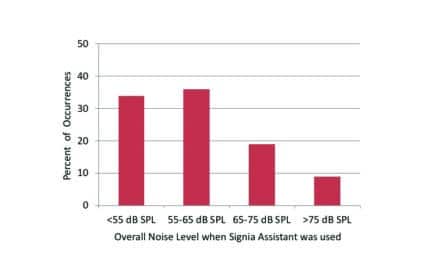The Hearing Industries Association (HIA), in partnership with the Hearing Loss Association of America (HLAA), the American Academy of Audiology (AAA), the Academy of Doctors of Audiology (ADA), and the International Hearing Society (IHS), has launched a public awareness campaign to promote better hearing called “Hear Well. Stay Vital.” The website helps disprove common myths about hearing loss and provides information on what to expect from a professional audiological exam, providing links to free online hearing tests and smartphone apps that can assist with baseline evaluations.
In a series of videos, the “Hear Well. Stay Vital.” campaign shows the importance of hearing health to pursuing and staying engaged with activities that ignite your passion, such as dance, music, or enjoying grandchildren. Click below for a sample video.
HIA Preserve the Passion Video
Beginning with the generation of baby boomers, the campaign aims to incorporate hearing tests into an annual series of wellness checks that have become routine for many (eg, vision, mammograms, dental). With hearing loss affecting about 1 in 3 people between age 65-74 and nearly 50% of those over 75, there is an increasing need to treat hearing issues before they impact social interactions, communication, and overall quality of life.
As recent research has shown, hearing loss often coexists with other health issues, known as comorbidities. For example, researchers at the National Institutes of Health (NIH) have found that hearing loss is twice as common among adults with diabetes, possibly due to poor circulation and/or elevated blood sugar levels, which are thought to damage blood vessels and reduce blood flow to various areas of the body. The inadequate blood flow that comes with cardiovascular disease can also contribute to hearing loss by robbing hair cells in the cochlea of vital oxygen needed to convert sound into electrical impulses for the brain to interpret as sound. If the hair cells become damaged, they cannot regenerate, which can lead to permanent hearing loss.
Additionally, the main components of the vestibular system, which controls balance and equilibrium, are located in the inner ear. Hearing loss can affect balance, as studies by Johns Hopkins and the Washington University of Medicine in St Louis have shown. In one study, hearing loss was associated with an increased risk of falls in the elderly, while hearing aids were shown to improve performance on balance tests for adults with hearing loss, in another study.
Research has also shown a link between hearing loss and dementia, with the increased cognitive load thought to tire the brain out, leaving older adults more vulnerable to brain shrinkage or atrophy.
For more information on the campaign, please click here.
Images/Media: Hear Well. Stay Vital. campaign






